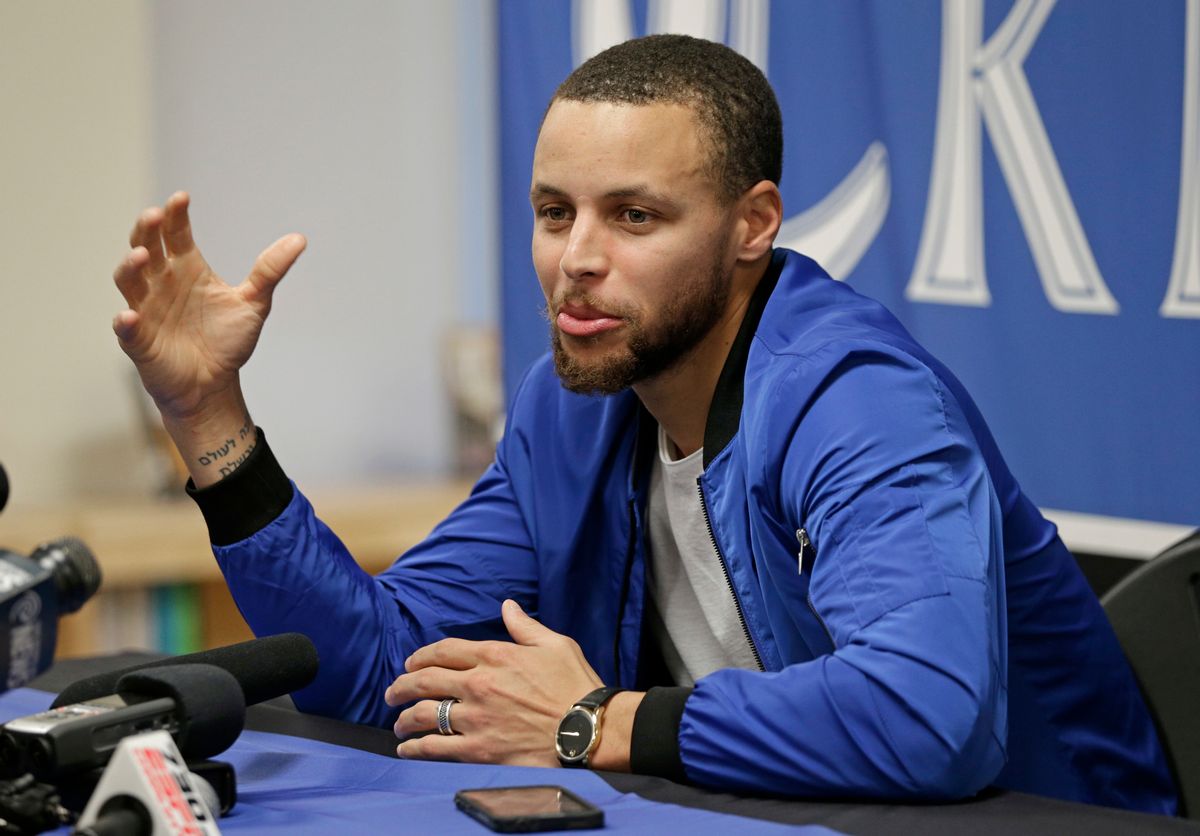Whether the dust-up between Stephen Curry and Under Armour keeps mushrooming or fizzles out, this much is true: In an era of contentious politics, the dynamic between high-profile athletes and the big-money sponsors they endorse is growing more complicated.
A player in the rare stratosphere that Curry occupies holds cards, and can now hold a company accountable for its politics and stances on social issues. Time will tell whether Curry, or anyone else, is willing to play the ultimate card by walking away.
"Easier said than done," said Chris Chase, a partner at Frankfurt Kurnit Klein & Selz, who works on legal aspects of high-profile sports-marketing campaigns.
"Yes, Steph Curry can terminate tomorrow if the contract gives him that ability, and on (Friday), he'd have a new deal because of who he is," Chase said. "But it might not be as good a deal. For Nike, he might be one of 20 basketball players and may not be the featured guy."
The back-and-forth between Curry and Under Armour CEO Kevin Plank is now into its second week and making for some awkwardness that could very well extend into this weekend's NBA All-Star Game, where Curry, LeBron James, Kevin Durant, James Harden and all the league's biggest endorsers will converge.
Plank called President Donald Trump "a real asset to our country." Curry responded by dismissing that notion, and suggesting he wouldn't hesitate to back out of deals with companies that don't reflect his values.
Plank came back quickly with a statement designed to tamp down discord — the last thing Under Armour needs on top of slowing sales growth that has hurt its stock price. Then, on Wednesday, the CEO followed up with a full-page advertisement in The Baltimore Sun, saying his words last week "did not accurately reflect my intent."
"With an anticipated new executive order on immigration set to come out, we will join a coalition of companies in opposition to any new actions that negatively impact our team, their families or our community," Plank said.
Under Armour has long been viewed as a progressive company, admired in part for its huge investment in rebuilding parts of Baltimore , where the company's headquarters are based.
On its face, the entire exchange may look like a small victory for Curry, who has been joined by actor Dwayne "The Rock" Johnson and ballerina Misty Copeland in showing concern over what Plank said last week. But the next step — the possibility that Curry could leave Under Armour and find another shoe company to endorse — would be more complicated.
"Yes, he's on a different level and he's made a pretty big brand investment in himself, and in a company like Under Armour," said sports marketing expert Joe Favorito. "Still, it's not just something you flippantly walk away from."
Curry is hardly the first athlete to take a stand on politics and social issues over the past 12 months. Colin Kaepernick's decision to kneel during the national anthem was a symbolic protest over treatment of blacks in America. More recently, Tom Brady and the Patriots have taken different stands on their like or dislike of the president.
Where Curry's situation differs is that there's an ongoing, two-way relationship with heavy financial stakes involved.
And Under Armour isn't the only big shoe company trying to stay out front when athletes who represent them take or consider taking stands on political issues.
Last weekend, Nike went big with an ad campaign featuring LeBron James, Serena Williams and openly gay soccer player Megan Rapione touting "Equality" — the latest in a number of pro-LGBT statements the company has made over the past several months.
"Clearly, it shows they're listening, seeing what the conversations are, knowing what the athletes are saying and putting it together," Favorito said. "They're saying, 'We believe you, we support you.'"
There's a lot at stake, particularly for a company like Under Armour, which had positioned itself to reshape a sneaker business that Nike has dominated for decades. Curry helped trigger a 350 percent uptick in Under Armour's sales of basketball shoes, according to Morgan Stanley analyst Jay Sole .
Over the past week, it also seems Curry is helping Under Armour stay true to the vision the company projected when it signed its first major hoops star.
"It's interesting to see Steph Curry come out and make the comments," Chase said. "Now, there could be specific trigger points that both parties have to consider. If you're the talent, do you give up the money? If you're the brand, do you give up your biggest endorser?"



Shares